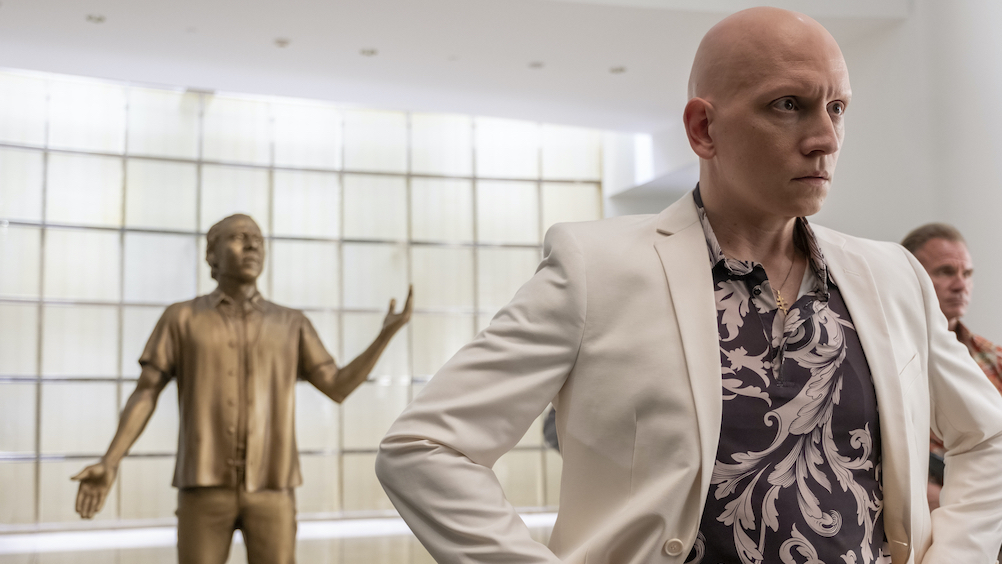
There is a nuance to being a casting director, which entails being able to direct an actor in an audition towards fulfilling their ultimate potential in securing a role. That’s why the word “director” is in the title, which Barry casting director Sherry Thomas astutely pointed out. As one half of Bialy/Thomas & Associates, Thomas and her business partner Sharon Bialy have an impressive roster of casting over 25 movies and television series, including Breaking Bad, Better Call Saul, The Walking Dead, The Righteous Gemstones, and the list goes on. Initially meeting on the HBO pilot The Mind of the Married Man, they joined forces after years of working together, having established a friendship and similar mindsets in their casting styles. They continue to mentor their assistants and associates, thus why “associates” is in their company title.
Born in Northhampton, Massachusetts, Thomas, who did not go to college to learn her craft, worked her way up the casting ranks from assistant to director. Essentially living her dream in Los Angeles, she has built up a mental roster, acquainting herself with actors from all walks of life. Her keen eye has earned her multiple Emmy nods for Outstanding Casting For A Comedy Series for Barry, as well as several nominations for Outstanding Casting For A Drama Series for The Handmaid’s Tale. Awards recognition aside, Thomas loves actors, and you can tell by speaking with her that she also respects and nurtures them.
Below The Line spoke with Sherry Thomas via Zoom video from her home in Los Angeles, where she proudly displays her daughter’s fourth-grade artwork entitled “Mixed Feelings” as her backdrop. She reflects on the magic behind originally casting the principal roles of Barry, which recently ended its fourth and final season on HBO.
Below The Line: Sherry, this might be bittersweet to talk about, but can you take me to the very first season and how you connected with Barry?
Sherry Thomas: I’ll go way back. From what I understand and what he has publicly spoken about, creator/star Bill Hader was a big fan of Breaking Bad. So I think that the two of us coming together was a really cool, magical thing. Sharon Bialy, my business partner and my better half, had been working at HBO, and (programming executive) Amy Gravitt called and said, “Hey, we’ve got this new show, and it’s with (co-creator) Alec Berg and Bill Hader, and would you be interested?” And I was like, “Yes, please. Thank you.”
You get a few of those pilot scripts every so often where it really jumps out because it’s so unique and special and has its own voice. We’ve been lucky enough to get a few of those. So we did our prep and went to the meeting, and that’s sort of the way that we go after the projects with the people that we really want to collaborate with.
BTL: Going into Barry, were you given a wishlist of actors?
Thomas: When we go into an audition for a job, we go in with a few ideas to share our aesthetic. He was already a fan of Breaking Bad, so he sort of knew what we could do and how we operated. We still send a resume that will show all of our credits; there’s no ego. There were a few suspect names that we spoke about. I said, “I got one that might be really crazy, but I’m just going to say it because it will define who Gene Cousineau is, and I think it could very much mirror who this person is. Henry Winkler.” It was very much a meeting of the minds, and he said, “Wow. I was kind of thinking along those lines as well.”
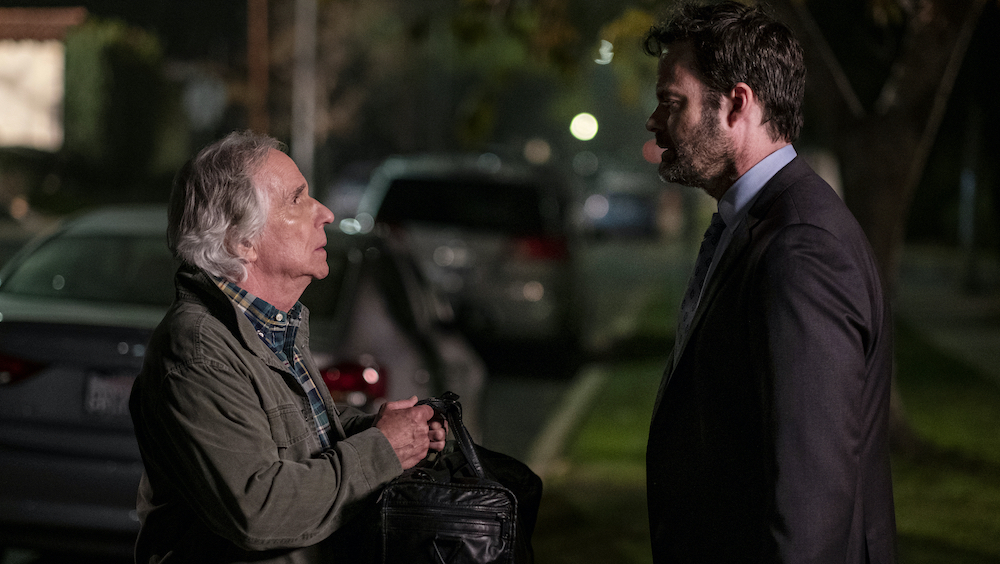
BTL: What was it about Henry Winkler that you felt he could play the role?
Thomas: I think it’s the way he would play the role. I think that Henry in my childhood was in my house every single Tuesday night (in Happy Days) as The Fonz, and my favorite time growing up in the seventies was the Tuesday night lineup. It was Happy Days, Laverne and Shirley. I was obsessed with Happy Days, and I would watch it on loop and in reruns into my adulthood. At the time, I used to get yelled at for watching a lot of TV and watching things over and over and over again, and as you grow up, what I realized I was doing was really gravitating towards something and almost studying without knowing that. I felt that he (Winkler) had been a star as Gene Cousineau had been a star. He had been out of the picture for seemingly a long time on a regular basis with audiences. Not in a way that I think was a staple; he had sort of come in and out. He’s the nicest guy, but there was also an air where I just sort of felt like he would really have some fun with this.
BTL: You mentioned Breaking Bad and casting Aaron Paul as Jesse Pinkman. I look at him along the same lines as casting Sarah Goldberg as Sally Reed in that they were both breakout roles. Do you pat yourself on the back for that?
Thomas: I have a hard time giving myself that pat on the back. It’s exciting and rewarding, but it’s also our job. If you are trying to work at a certain level and work with certain people, it’s kind of what you have to do, but it’s also just what you do. I don’t know how to articulate it, but I have a hard time patting myself on the back for anything. I’m a kid from Northampton, Massachusetts, who did not go to college, and I am living my dream, but also many, many, many others. Sometimes you hear certain things and you just pinch yourself and you’re like, “Is this really my life?” I’m grateful. I also think that’s what keeps Sharon and I working as hard today as we did before Breaking Bad or when we were casting assistants and associates. Otherwise, what’s the point?
BTL: What was it about Sarah Goldberg that you saw her for Sally Reed?
Thomas: With Sarah, you learn over time about the body of work and what these actors are capable of, and you’re nurturing and cultivating a relationship. So when you read that script, you go, “Oh my God, this person would be perfect.” It’s hundreds of actors, and that’s what our job is. So when we got to the role of Sally, I just started reading a lot of women who, over the years, I have respected, loved, and thought could be right, and meeting a lot of new people who I hadn’t met, taking copious notes. And you say why they might be right, why you might send the tape to Bill, why they aren’t right for this, but remember them for something else that could be right for the acting class scenes—all of that.
You’re on the phone with the agents, the managers, and the reps quite a bit, and that’s how Sarah [originally] came into my office. “There’s this actress, Sarah Goldberg. Are you familiar with her? Well, you shouldn’t be because she’s been in London for so long and [now] she’s in town.” And so, she came in and we jived personally. And then we got to work, and I just was like, “Holy shit, who, where is this? Is somebody punking me?” The script comes to life in a newly layered and meaningful way that many other wonderful actresses have read, and they were very good, but it was in her and it was innate. This is just an audition, and that’s how you know so much of what we do in casting is our gut, the feeling, the goosebumps, and the IT connection. They make us better as readers and as casting directors.
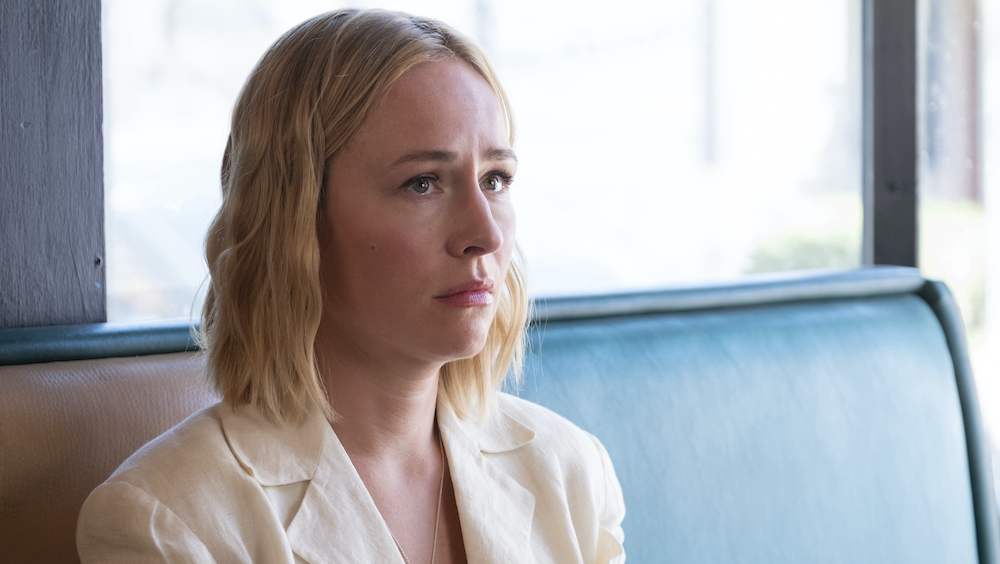
BTL: That’s so great. I loved Stephen Root in True Blood, and then his character has like a 180 in this. So was that in your mind when you were casting Fuches?
Thomas: I don’t think we knew beyond season one what the arc might be. It’s interesting; everybody who ended up in the cast—our core cast, our series regulars—went through the process. There was not an offer in the bunch. I think that is what makes it more exciting because it is about the pairing of and watching all of them, Henry and Sarah. Stephen read with Bill about the audition process and the magic that was happening there. At each step of the process, you felt how special this show was going to be. We had read the gamut on the Fuches role. It was very open to interpretation as to what we were looking for. We read Kimberly Hebert Gregory because we thought that would be exciting. She was a wonderful actress who was on Vice Principals, and Bill really liked her. We talked to Ann Dowd (The Handmaid’s Tale) about it.
BTL: Was the role originally supposed to be for a woman?
Thomas: That’s our job to ask, why not? Why couldn’t it be? We read black actors, Hispanic actors, younger actors, and older actors. That’s part of the creative process, you know? Mr. Stephen Root, when that happened, I don’t think anybody thought based on his body of work that he would read, and so there were conversations like, “Of course he’ll read. If there’s real interest, let’s get him in the room with Bill.”
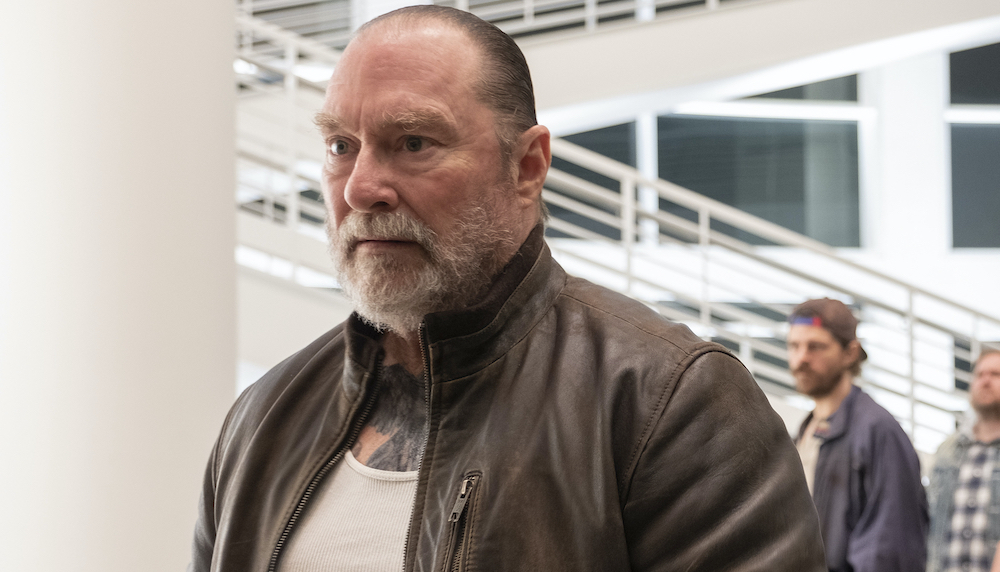
BTL: Anthony Carrigan as NoHo Hank was also a huge surprise. I don’t think a lot of people knew who he was.
Thomas: They didn’t. I love that guy so much. And as fellow “Massholes,” we’re both from Massachusetts, so we’ve always just jived. We were doing a show called Gotham, and he played one of the villains prior to him going public with his alopecia. When he was fresh out of drama school, he was sort of the leading young man. That’s how we started to develop a relationship with him, reading him for all of these different pilots that we were doing. He was extraordinary. He was so talented, charismatic, and he was sexy; he was everything that just embodied what you’re looking for in that kind of role. He got a show on Fox, and then after that, he seemed to disappear for a bit and resurface with Gotham.
When he came in, obviously his appearance had changed drastically, and we had a really beautiful conversation about it, and he was very open. I just thought, “Wow, to go on that journey and what that must have done for him.” I didn’t know if Anthony could do accents, but I just felt like this was in him. I called his manager, and I said, “Does Anthony have any accents?” He came in and read with me, and you can hear me in his initial audition tape laughing behind the camera. I cannot keep it together.
I sent Bill a text and I said, “I’m going to send you a guy in today’s auditions, and I need you to tell me which one you think it is that I’m so excited about who is amazing and we may want to test him.” I sent him the virtual auditions, and he wrote me back, “Anthony Carrigan, he’s the guy.” It’s special because I think it changed his life in a way that you hope to do in your job for people.
BTL: What were some of the other memorable auditions?
Thomas: Michael Irby for Cristobal. Sharon and I have a long history with him. We cast him in a show way back in the day called The Unit. He was at my wedding, and we brought him in, and he was like, “Nobody ever lets me do comedy. Sherry, I don’t know what you want from me.” He had a choice, and he had a vision. He came in-costume, which he never does. He had his shirt, a hat, and a book. He had some hair, and he was all in on the accent. Michael, as a human being, is also a deep spiritual person—not too woo hooey, but he’s an artist and he is a deep person, so he connected with Cristobal in that way. Within the humor, he’s bringing a grounded quality to it. That is why people connected with him.
When you are able to cultivate those relationships with actors by being in the room with them, there’s trust. So even if I say to an actor, “Look, I don’t know if this is the right direction to go, but I just want to try it,” they trust me. There’s a wonderful collaborative energy that happens in the room when you’re able to be with actors. It was interesting because nobody knew where this role was going to go. I mean, NoHo Hank wasn’t even supposed to live. I believe Bill and Alec looked at each other and were like, “They can’t kill him. He’s amazing!”
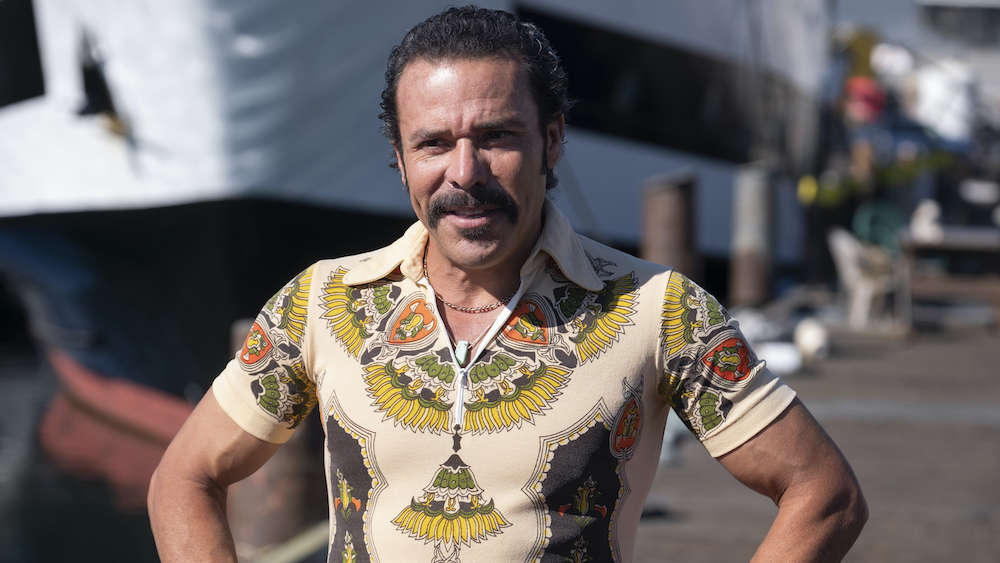
BTL: In an audition, do you sometimes feel like a director in a way because you’re giving giving them a note.
Thomas: We have had people say to us, “You know, I don’t know what you did with them in the room, but I couldn’t get ’em to do it on set, you know?” We are directing all day long. It’s in our title. There just isn’t a lot of respect for it, if I’m being honest. There isn’t a lot of real knowledge of what our job encompasses because, I mean, there’s some production involved in it. You’re managing schedules, and you’re managing money where we save money for productions. You are talking to every department on the show. You’re talking to wardrobe and writers; it’s all communication. You’re talking to studios and networks, which is sometimes a different conversation. You have to navigate those roles because they are different. Also, Sharon and I just have a way that we work. I think that sometimes it is unique. We’re super transparent and respectful, and we work our asses off. And we love actors, and we love directing.
BTL: What do you love about actors?
Thomas: What I love about actors is that I love a type of actor who is somewhat similar to me. I think that if people can come in and be open and let their egos be put aside for a little bit, I love the trust. I love the creativity. I love what I learned from them about a scene and their take on it, and I’m leaning in; I’m engaged. They teach me something about a piece of the scene or the character as a whole. There’s an interaction. I think actors sometimes need to be nurtured, and I like nurturing people. They have to be vulnerable. They have to feel that they’re in a safe space, and I know that our office has always provided that for actors.
BTL: What makes a great casting director, all in all?
Thomas: I think somebody who listens, somebody who does not operate from a place of fear, someone who is open to learning, someone who has strong opinions and is respectful of those opinions Someone who can be a good leader for their staff because they are the next generation of casting directors. I think it is a collective collaboration. Not to say you can’t be enthused about an idea or a choice that was made because it was your choice, but humbly talk about that. We try to be open to change, and try to teach why it’s changing within our industry. Treat people kindly, nicely, respectfully, and loyally.
The fourth and final season of Barry is now available to stream on Max.





